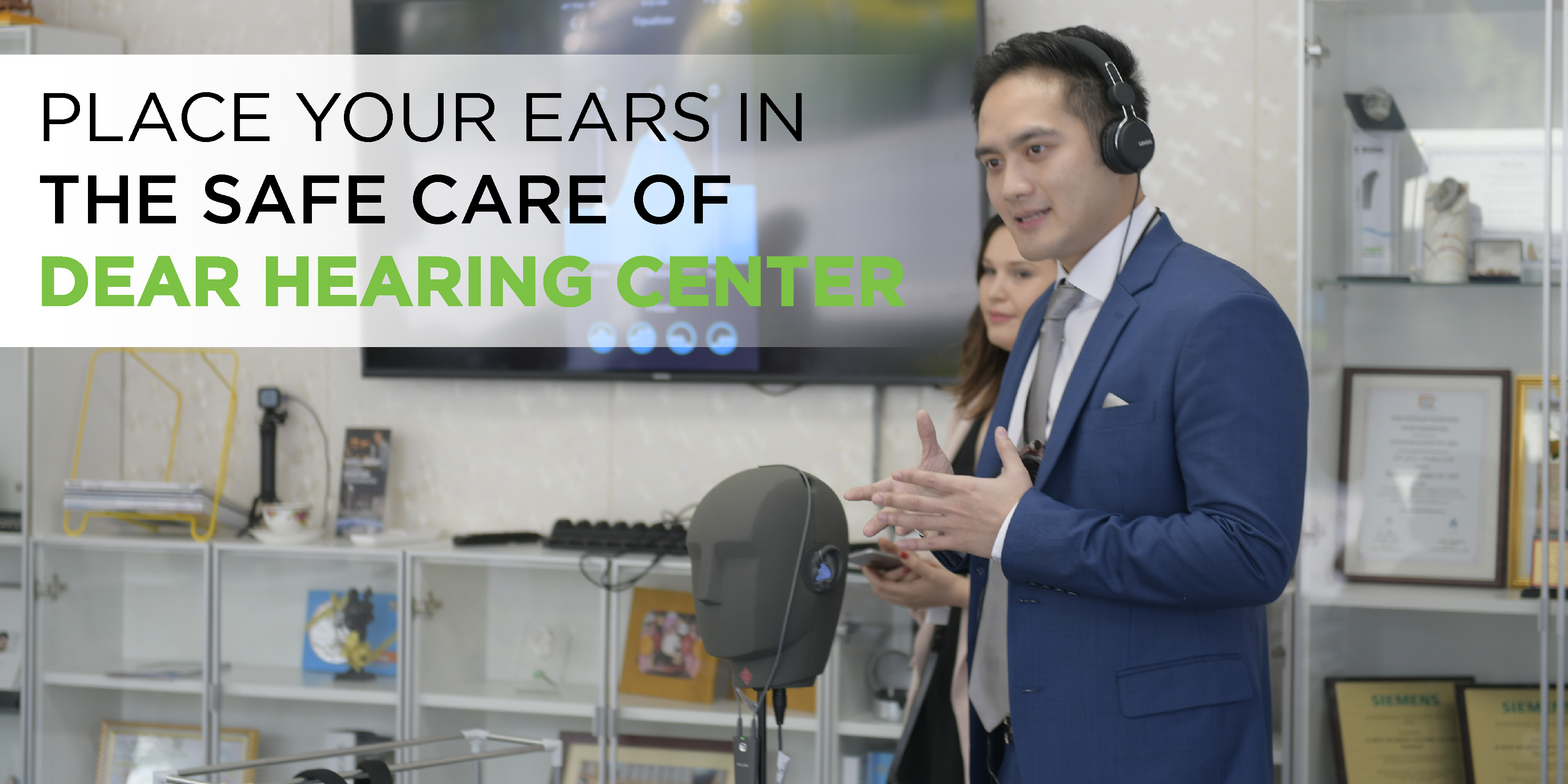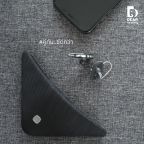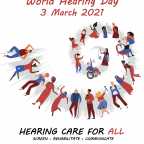Of the five sensory organs, the one that tends to be most overlooked is the ear. Yet, statistics show that 25% of the Thai population aged 50 and above have hearing issues.
I have never had a hearing check-up before, but now that I know there are alternatives to hospitals for audiology (hearing-related) care, I am more likely to have one. The most prominent, well-established service in Thailand is DEAR Hearing Center, which has been building up its presence for almost 30 years in the capable hands of founders Asst. Prof. Somchai, MD and Dr. Mukda Pattana-Anek, and is now poised for new successes under the helm of their son Khun Phum, its Managing Director. The word “DEAR” in its name stands for “Dedicated, Empowering, Assisting, Reliable”.
Dr. Somchai qualified in Otolaryngology – more commonly known as Ear, Nose & Throat (ENT) – from the University of Münster. When he and his wife eventually opened their first hearing centre in Chonburi, in 1993, they had a clear idea about the type of service they would offer. “Thirty years ago, ENT doctors outside Bangkok had to send their audiology patients to the capital city for treatment. We wanted to provide a one-stop, high-quality service that was convenient for customers, and we also offered a personal touch. So we built our hearing centre with a laboratory for diagnosis, a store selling hearing devices and a repair centre. I brought sophisticated lab equipment and hearing devices in from Denmark..”


The couple started to expand their presence, and today there are 13 DEAR Hearing Centers in major Thai cities including Chiang Mai, Ubon Ratchani, Pattaya, Surat and Hat Yai. Dear Hearing Staff are certificated by an Audiologist and have extensive experience with hearing devices. Khun Phum says: “Our customers are loyal. They return to our centres regularly for service and consultation, and become as fond of our staff as we become fond of them. Our service is personal – we know our customers’ history, lifestyle needs, and we keep their audiology records which can be sent anywhere online if needed. At the end of each year I always ask my people: “How many people’s lives have you impacted?”
“It’s a big concern though that awareness about hearing issues is very low. Many people wait for eight years before they seek professional advice – by which time their hearing has deteriorated more, because of the lack of treatment and more sound abuse. People need to get their hearing checked as regularly as their eyes. It’s a fact that 25% of the Thai population aged 50 and above have hearing issues.”
How does one know if they have a hearing issue? Dr. Somchai explains: “If they lip-read, ask people to repeat things, favour one ear, or need to really concentrate to understand talk. If people around them seem to be talking uncomfortably loud – those with a hearing issue are actually very sensitive to loud noises. If untreated, these symptoms can lead to misunderstandings and frustration with people and life overall, and some people will start to withdraw from social settings. After a few years their ear-to-brain electrical pathways will no longer be engaged and the person may slip into depression and shut down, feeling misunderstood.”
The family’s customer-centric approach is equally credited to Dr. Mukda, with her warm and intuitive interpersonal manner. A Doctor of Audiology backed up by a Master’s in Communication Disorders, she specialises in identifying and treating hearing disorders, and fitting hearing devices. An audiologist uses specialised equipment to quantify the degree of hearing loss, and the softest sounds a person can hear at different pitches, or frequencies. Questioning will uncover symptoms such as tinnitus (ringing) and the customer’s typical daily environment at home, work, and outdoor. Accurate fitting ensures the device will amplify at the correct pitches and levels, the latter of which is incremented gradually so that the customer’s ears will slowly acclimatise to regaining lost sound frequencies. Hearing devices should be worn consistently for at least two years in order to retrain the customer’s ear-to-brain electrical pathways, and to ease customers’ concerns about post-sales service.


The newer hearing device models are sleek and practically invisible. Khun Phum says: “There are factors to consider when choosing a device. A small one is not suitable if hearing loss is profound, or if the customer has shaky hands and unable to change the battery. Then there is lifestyle e.g. do you socialise a lot? If you have a very active lifestyle, then you deserve better sound enhancement. The smallest model is the size of a jelly bean and moulded for each ear for a customised fit. Behind-the-Ear models are bigger but sleek, with a slim transparent tube that is hardly noticeable, especially on a woman with her hair down. Please do not buy the cheap sound amplifiers that are sold online. Those simply amplify all sounds in your ear regardless of pitch, which will damage your ears and make you deaf.”
Khun Phum, who rounds out the executive team with his Finance and Economics background, talks briefly about the future: “I’m looking to adapt with the digital age and broaden our services to cover tech-driven hearing and lifestyle devices. One example of this is WIDEX EVOKE, the world’s first machine learning hearing aid that categorises the sounds in your different environments – such as inside a car, outdoors, at a party – and makes adjustments according to your preferences. This is cutting-edge technology and will improve the lifestyle of hearing-impaired people immensely. Today’s hearing devices act as multi-purpose digital gadgets which can connect to a smartphone, iPad, notebook and more, enabling users to communicate very easily and effectively with others, which will boost their confidence and activity level tremendously. I’d also like to look into what we can do with other technology including online channels, omni-channels, lifestyle apps and Google technology.”


















